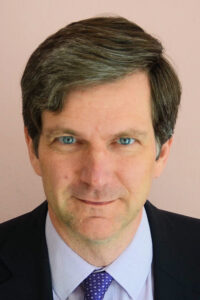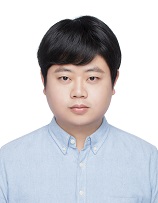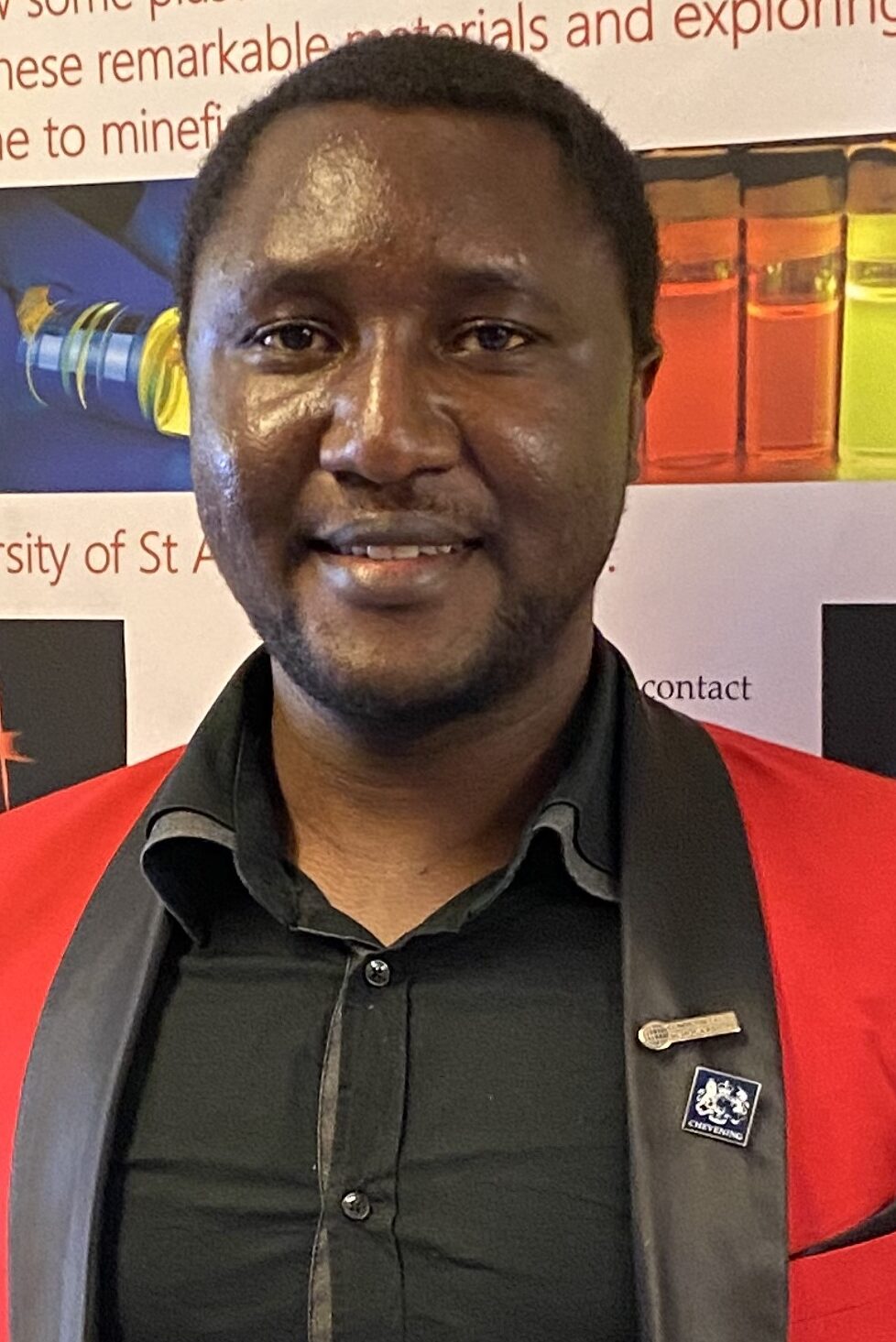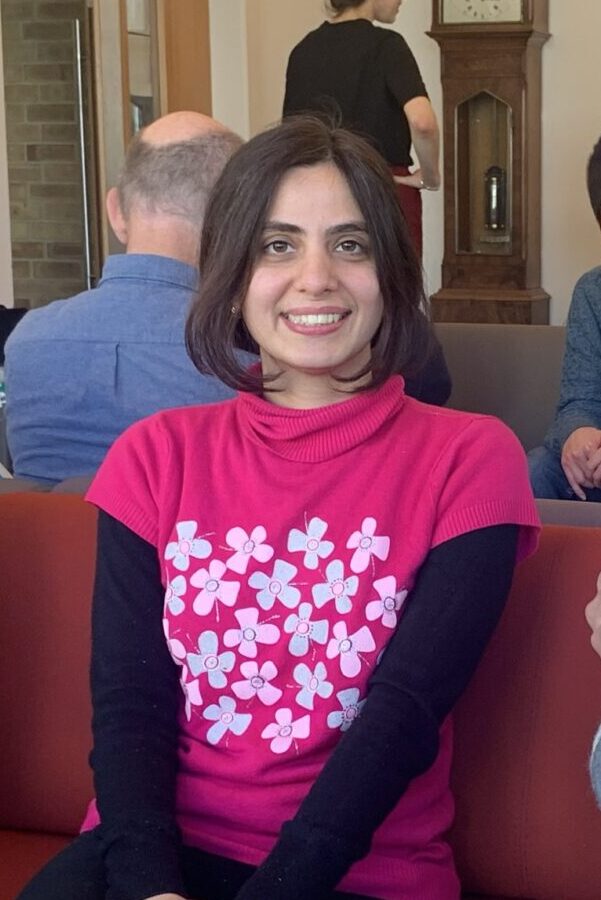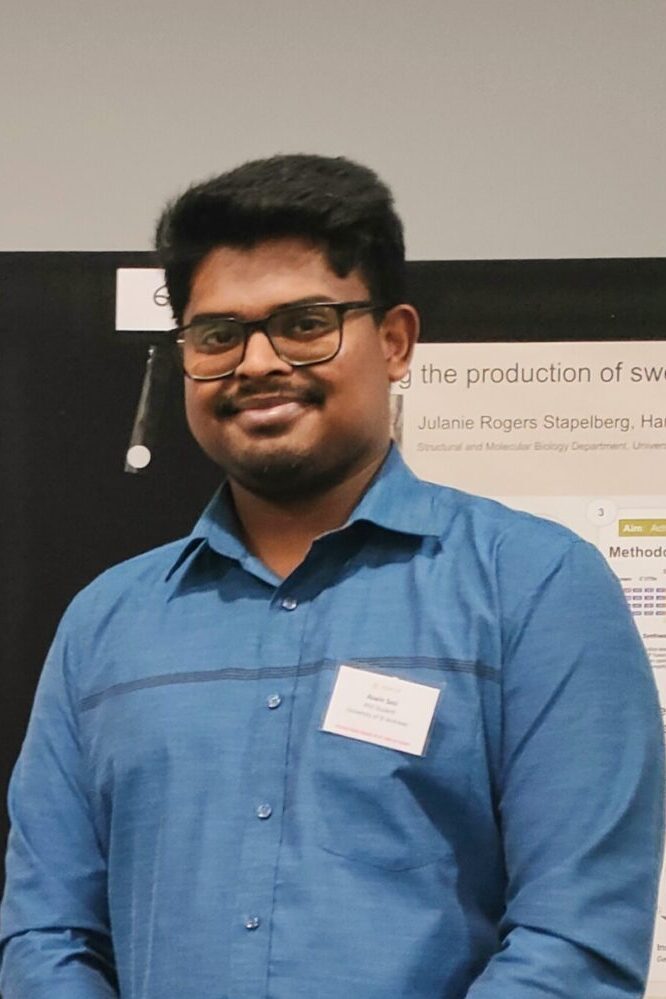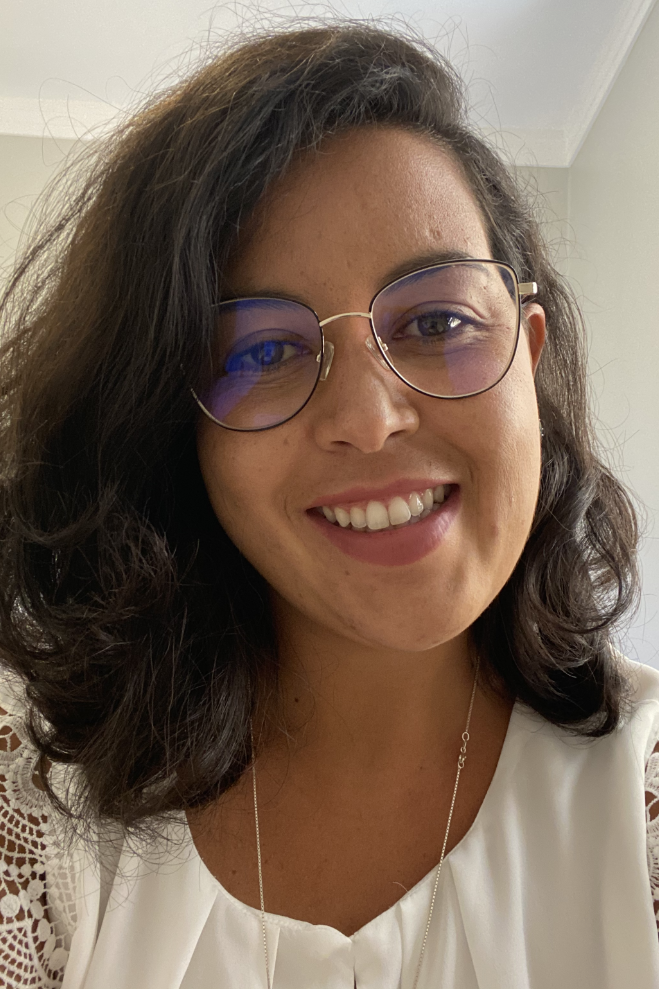Current group members
The organic semiconductor optoelectronics group consists of a diverse team of researchers, each bringing unique skills and perspectives that helps make our research world class.
All email addresses listed below end in the suffix ‘@st-andrews.ac.uk’.
Prof Ifor Samuel
Ifor studied for both his MA and PhD in Physics at Cambridge where he developed his fascination with conjugated polymers. After finishing his PhD he moved to Paris and worked with France Telecom for two years, investigating the non linear optical properties of organic materials. Then he returned to Cambridge for a year, received a Royal Society University Research Fellowship and took up a position at the University of Durham until August 2000 when he moved to St Andrews. In 2001 he started the Organic Semiconductor Centre to encourage collaboration between physicists and chemists in developing the next generation of organic semiconductors and the wider field of organic electronics.
Email: idws
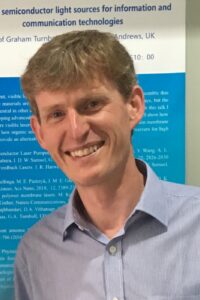 Prof Graham Turnbull
Prof Graham Turnbull
Graham is a professor in the School of Physics and Astronomy at the University of St Andrews. He graduated with a first-class M.Sci. degree in physics in 1995 and a Ph.D. in 1999, both from the University of St Andrews. His doctoral research project on nonlinear optics was supported by a Carnegie Trust Scholarship. Graham’s work on organic semiconductors began as a postdoc at the University of Durham. From 2002 to 2007 he held an EPSRC Advanced Research Fellowship. He is a Senior Member of the IEEE and Fellow of the Institute of Physics. His current research interests focus on photonic applications of soft materials, including organic semiconductors, plastic lasers, chemical sensing, smart lighting technologies and nanophotonics.
Email: gat
![]() https://orcid.org/0000-0002-2132-7091
https://orcid.org/0000-0002-2132-7091
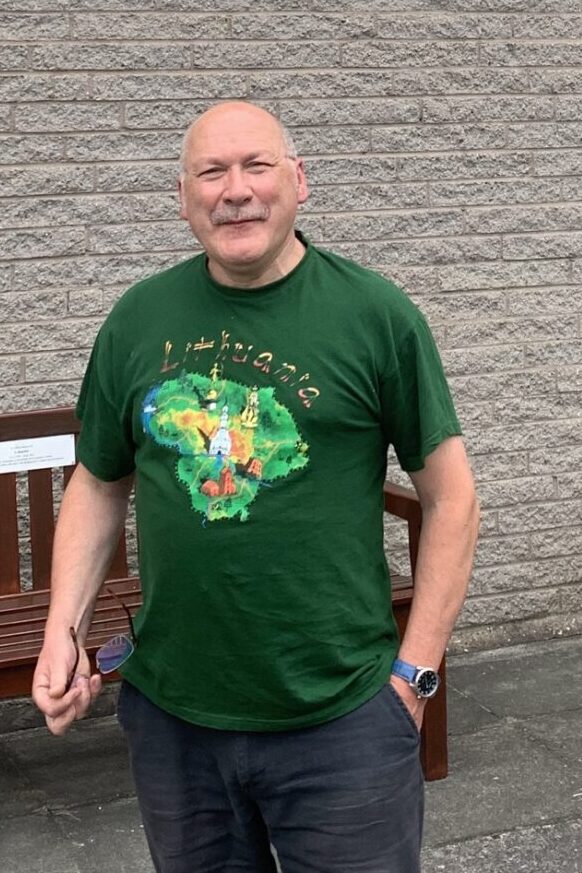 Dr Arvydas Ruseckas
Dr Arvydas Ruseckas
Arvydas graduated in Physics from Vilnius University in Lithuania in 1985 and received his PhD in chemical dynamics and physics jointly from the Lund University (Sweden) and the Institute of Physics (Vilnius) in 1999. He joined the team at the University of St Andrews in February 2001. His current research involves studies of photophysics and light amplification in conducting polymers, molecular solids and model organic molecules using ultrashort light pulses and ultrafast spectroscopy.
Email: ar30
 Dr Ross Gillanders
Dr Ross Gillanders
Ross was awarded a BSc(Hons) in Instrumentation with Applied Physics from Glasgow Caledonian University in 2001, and completed his PhD in Physical Chemistry with a thesis titled “Optically-Addressed Thin Film Sensors” in 2004 at Strathclyde University, Glasgow. His first postdoctoral position was at the ICMCB at the University of Bordeaux developing spectroscopic instrumentation for supercritical fluid processes, before moving to the Optical Sensors Laboratory in Dublin City University in late 2005 to work on an optical oxygen sensor for marine and estuarine applications. He subsequently worked in University College Cork developing novel polymeric optical oxygen sensors for food packaging. Prior to taking the role at St Andrews in October 2013, Ross worked for three years at Cork Institute of Technology, mainly developing instrumentation for industry-led water-related projects.
Email: rg89
![]() https://orcid.org/0000-0002-8825-3234
https://orcid.org/0000-0002-8825-3234
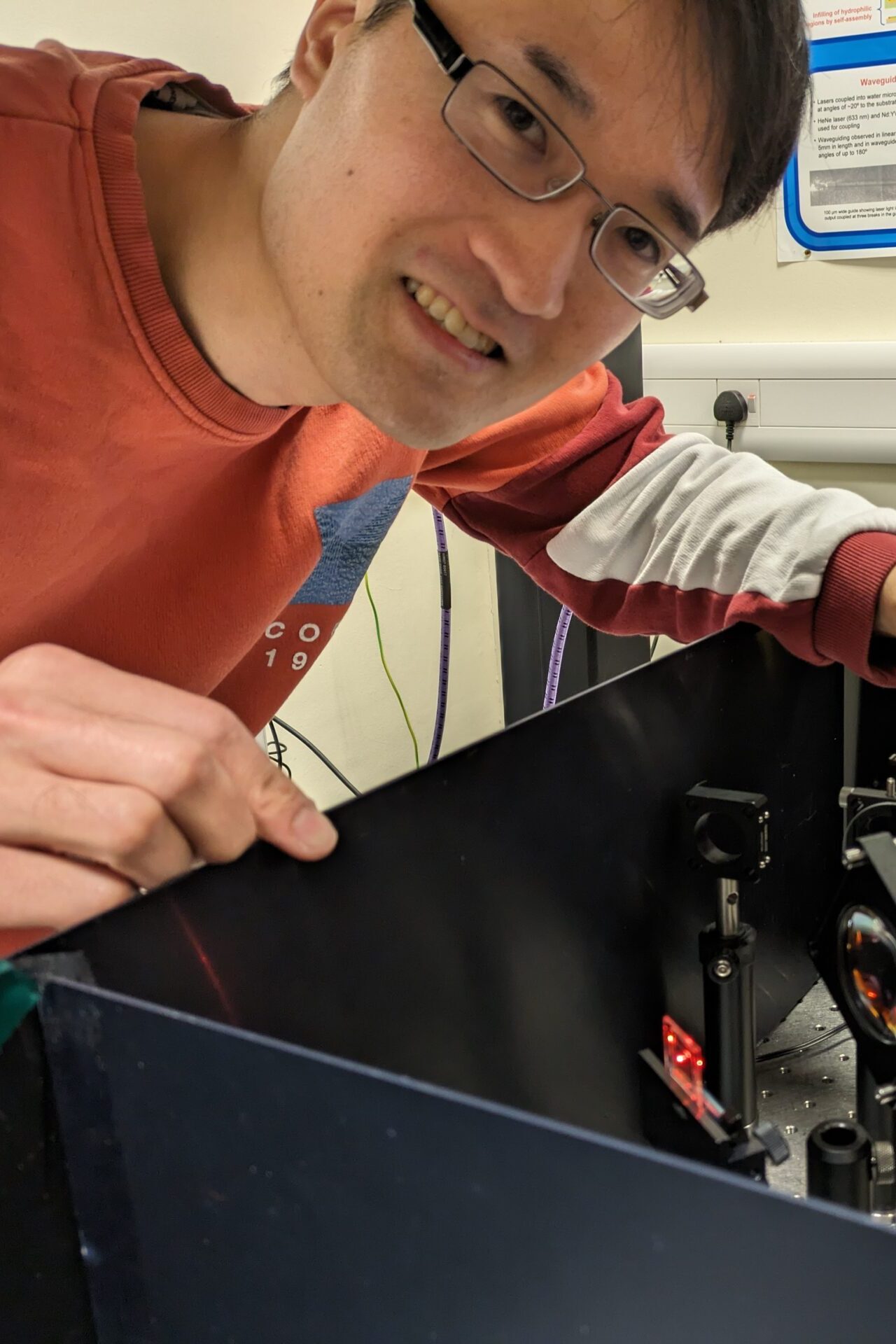 Dr Kou Yoshida
Dr Kou Yoshida
Kou was born in Nagasaki, Japan. He has been committed to research in organic semiconductors since he was an undergraduate at Kyushu University, Japan. He conducted his bachelor, master and PhD studies there under the supervision of Prof. Chihaya Adachi and gained experience in the design and synthesis of organic materials as well as device fabrication and characterization. His PhD study is on device temperature rise of organic semiconductor devices during short voltage pulse application at high current density. After he obtained PhD in engineering, he joined the groups of Profs. Ifor Samuel and Graham Turnbull as a research fellow. He is currently studying organic light-emitting diodes for optical communication.
Email: ky25
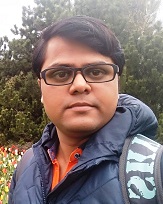 Dr Abhishek Gupta
Dr Abhishek Gupta
Abhishek is from historical place Kalpi, 165 Km from Lucknow, India. He completed his B.Sc. in Chemistry and Industrial Chemistry from Janta College, Bakewar (U.P.) and M.Sc. in Industrial Chemistry from Aligarh Muslim University (AMU), Aligarh. He also completed M.Tech in Nanotechnology from AMU. During M.Tech he worked on nano-sized semiconducting TiO2 powder at ARCI Hyderabad. After M.Tech, he worked on device fabrication for photovoltaic cell at National Physical Laboratory, New Delhi. In 2017, he received his PhD on “Schiff base derivatives as Fluorescent Chemosensors, Solid State NIR Emitters and Catalysts” from IIT Mandi under the guidance of Dr. Pradeep C. Parameswaran. He joined University of St. Andrews as Newton International Fellow, where he is working on highly efficient red TADF emitters for photodynamic therapy (PDT).
Email: akg5
![]() https://orcid.org/0000-0002-0203-6256
https://orcid.org/0000-0002-0203-6256
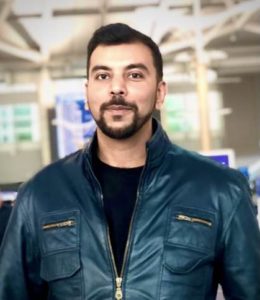
Dr Hassan Hafeez
Hassan completed his Bachelors (BSc) in Metallurgy and Materials Engineering in 2009 from University of the Punjab, Pakistan. He was then awarded a fully funded overseas fellowship by the Government of Pakistan for MS leading to PhD education at Hanyang University, South Korea. During his doctorate (2011-2016) in Materials Engineering, he explored various interdisciplinary topics including semiconductor micro/nano fabrication, photolithography, etching, thin-film properties, surface functionalization techniques, wettability, and microfluidic designs. After his graduation, he joined Korea University as a research professor (2016-2020) with a focus on organic light-emitting diodes (OLEDs), silicon/polymer solar cells (Photovoltaics), wearable/stretchable electronics, and charge transport mechanisms. He started working at the group of Profs. Ifor Samuel and Graham Turnbull as a research fellow in 2020 with a research interest in high efficiency and uniformity of large-area OLEDs for photodynamic therapy, and flexible optoelectronic devices.
Email: hh91
![]() https://orcid.org/0000-0001-9647-008X
https://orcid.org/0000-0001-9647-008X
Dr Sagarika Mishra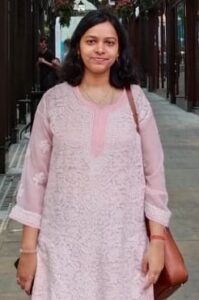
Sagarika hails from Puri, a coastal town in the eastern state of Odisha, India. She received her BSc (hons) in chemistry from Utkal University and MSc (chemistry) from Christ University, Bangalore. In 2023, she successfully completed her PhD at India Institute of Technology (IIT), Bhubaneswar. Her PhD work was on ‘Fluorogenic and Chromogenic Chemosensors for the Detection of Inorganic Ions and Small Molecules’. In her present role as a post-doctoral research fellow at the University of St. Andrews, her endeavours are directed at exploring optical sensors for the detection of chemicals like pharmaceuticals in environmental applications.
Email: sm597
Dr Junyi Gong
Junyi is from Shanghai, China and graduated from Fudan University in 2018 with an MSc in physical electronics with a project about all-inorganic perovskite distributed feedback lasers. Junyi joined the group in September 2018 as a PhD student supervised by Prof. Ifor Samuel and Prof. Graham Turnbull. His research mainly focuses on hybrid organic perovskite lasers and underlying device and material physics.
Email: jg259
![]() https://orcid.org/0000-0003-4817-4176
https://orcid.org/0000-0003-4817-4176
Dr Edward Ogugu
Edward obtained an MSc in Applied Physics with a Distinction from the University of Strathclyde in 2017, sponsored by the UK government via Chevening Scholarship. He completed his BSc in Physics at Bayero University, Kano in Nigeria in 2013, during that period he was still actively working as a police officer. In fact, He has over 17 years work experience working with the Nigeria Police Force, part of which he spent about five years working as an Explosive Ordnance Disposal (EOD) technician with the Police Anti-bomb Squad in Nigeria. He has keen interest in developing novel sensors for efficient detection of Improvised Explosive Devices (IEDs). In 2019 he was awarded a Commonwealth Doctoral Scholarship tenable at the University of St Andrews, and presently conducting research to develop novel optical sensors using organic fluorescent materials for enhanced detection of IEDs.
Email: ebo3
 Peter Brown
Peter Brown
Peter studied at the university of Warwick where he obtained an Mchem in 2019 under the supervision of Prof. Pat Unwin. His project revolved around optically visualising mass transport in nanopipettes with laser scanning. Currently, Peter is pursuing a PhD in Physics at the University of St Andrews with his research utilising time-resolved spectroscopy to investigate solution-based semi-conductors such as perovskites. He is co-supervised by Prof. Ifor Samuel and Prof. Eli Zysman-Colman. In his free time Peter enjoys playing tennis and strategy games.
Email: pb95
 David Webster
David Webster
David graduated from the University of Strathclyde in 2019 with an MSc in Physics, with his Masters’ project focused on temperature-induced photochromic switching in Eu-doped GaN LEDs. David is pursuing a PhD in Physics at the University of St Andrews. His work is centred around characterisation of organic and hybrid-organic perovskite semiconductor materials through various non-destructive optical and electrical methods, including contact potential difference and ambient photoemission spectroscopy.
Email: dejw1
Mina Riahi
Mina graduated from University of Tabriz in Iran in 2018, where she completed her Master of Science in Electrical Engineering- Micro and Nanoelectronics Devices. Her master’s thesis was mainly about the role of trap states in response time of infrared photodetectors. Now, in St Andrews her PhD thesis is about large area organic light emitting diode for photodynamic therapy.
Email: mr287
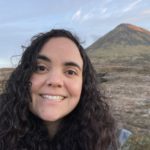 Michele Duarte Tonet
Michele Duarte Tonet
Michele is from Brazil and graduated in Physics from the Federal University of Santa Catarina. During her undergrad studies, she was a research student at the Laboratory of Organic Optoelectronic and Anisotropic Systems, where she studied liquid crystal molecules applied to electronic devices. Michele obtained her Masters in Material Science and Engineering, in 2021, at the same university. During her Masters, she studied electrospinning techniques with the objective of producing fluorescent polymeric nano and microfibres. Currently, Michele is a PhD student at the University of St Andrews and joined the group in October 2021. She is co-supervised by Prof. Graham Turnbull and Prof. Eli Zysman-Colman and her project is focused on the development of optical sensors to detect environmental analytes. In her spare time, Michele likes cycling, hiking, travelling, and watching TV shows.
Email: mdt1
Aswin Sasi
Aswin Sasi is from Kerala, India. He has done his Bachelor’s in Biotechnology from Sahrdaya College of Engineering and Technology, Kerala, and Master’s in Bioscience and Bioengineering from IIT Jodhpur. He is currently doing his PhD on developing a smart lighting system for growing algae, supervised by Prof. Graham Turnbull.
Email: as606
Marianna Leite De Avellar
Marianna was born in Rio de Janeiro, Brazil and have graduated in Medicine in Faculdade de Medicina de Petrópolis in 2017, following with her MScR Infectious Diseases by the University of Edinburgh in the same year. As a Primary Health Care Specialist by the Universidade Federal de Santa Catarina, she has worked directly with patients in situations of vulnerability and lack of resources, including during the COVID-19 pandemic.
Marianna is a PhD student in the School of Medicine working on an interdisciplinary project in Optoelectronics with the School of Physics and Astronomy to develop antimicrobial Photodynamic Therapy. PDT is a possible alternative to traditional antimicrobials, considering the continuous growth of resistance to antibiotics by pathogenic microbes and the need for new treatments for these infections. Her career goal is to pursue new technologies and treatment options for infectious diseases that mainly affect the most vulnerable people in low-income countries, especially in an expected era of antimicrobial resistance.
Email: mlda1
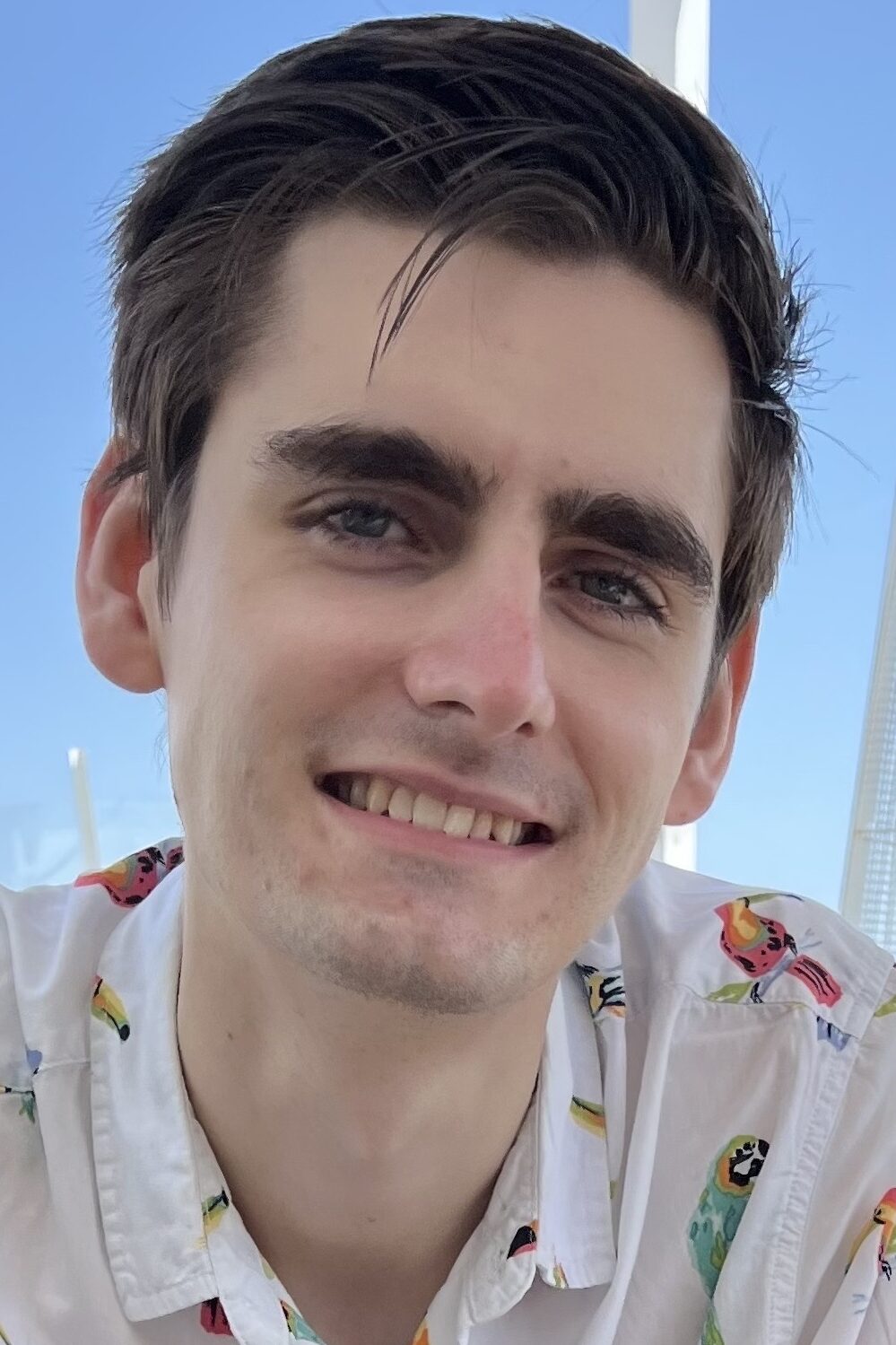 Thomas Sayner
Thomas Sayner
Thomas is a PhD student supervised by Prof Ifor D W Samuel. His thesis “High speed optoelectronic properties of organic semiconductors” focusses on measuring properties of working optoelectronic devices such as OLEDs and Organic Solar Cells. He graduated with a first class MPhys degree from the University of St Andrews in 2022.
Email: ts234
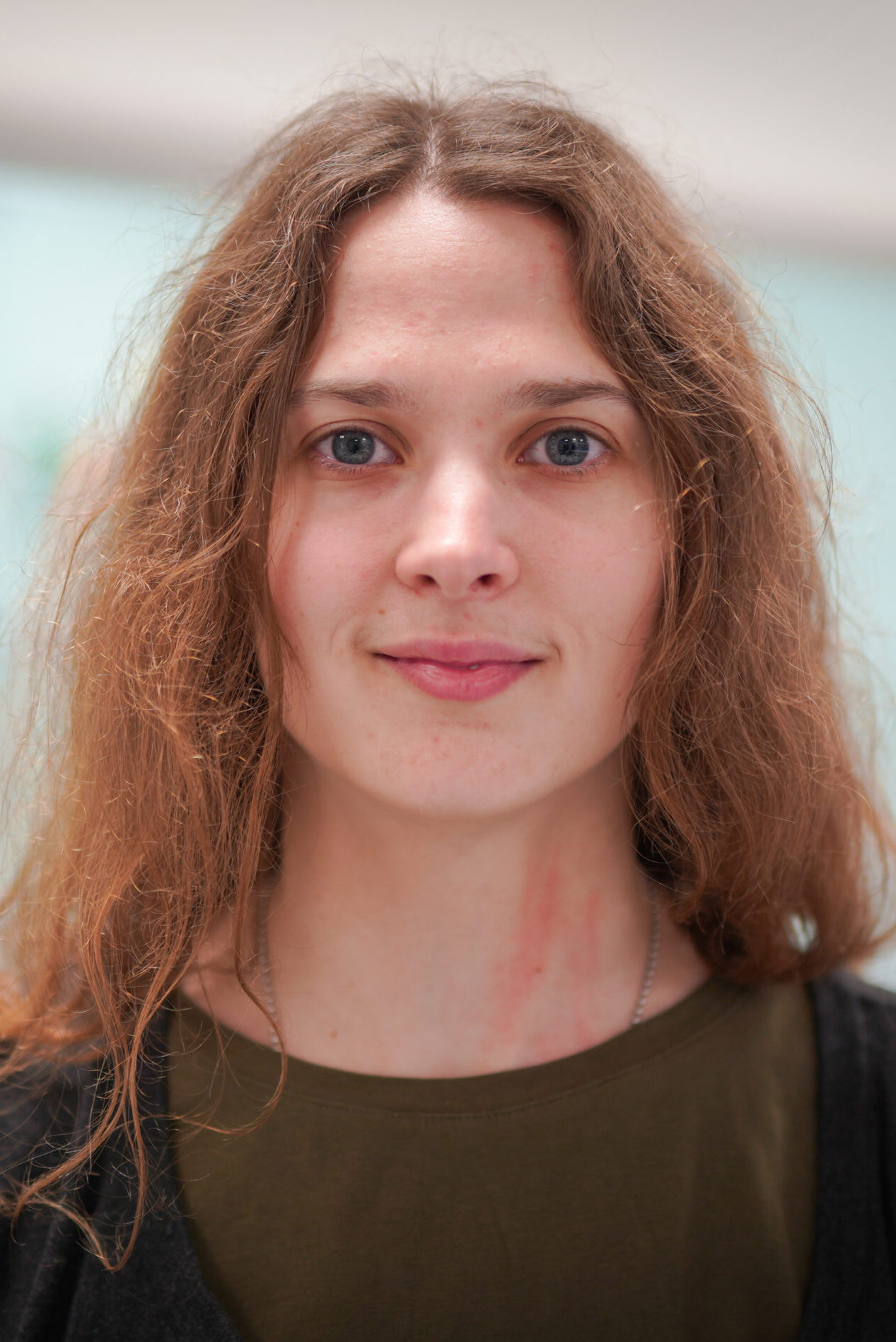
Eglė Tankelevičiūtė
Eglė is from Šiauliai, a reasonably sized city in Lithuania. She studied at Vilnius University where she received a BSc degree in physics. During her undergraduate years, Eglė became fascinated with the world of organic optoelectronics and spent much time in the laboratories of the Institute of Photonics and Nanotechnology. Eglė’s work was focused on bifluorene derivatives, which possessed surprisingly strong spin-orbit coupling, and transient absorption spectroscopy to density functional theory calculations were employed to understand the processes at hand. Currently, Eglė is a PhD student at the University of St Andrews and joined the group in September 2022. She is co-supervised by Prof. Eli Zysman-Colman and Prof. Ifor Samuel and will work on improving the stability of MR-TADF based OLEDs. In her free time, Eglė likes cycling and anything even mildly related to it, exploring new places and reading.
Email: et215
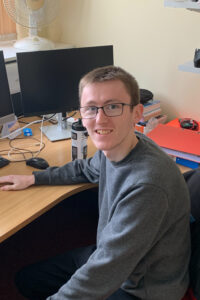 Liam King
Liam King
Liam was born in Caithness and graduated from the University of St. Andrews with an MPhys in 2023. During his undergraduate he completed a Carnegie Vacation Scholarship with the group before also working in the group for his master’s research project. In the past he has also worked with Prof. Iain Baikie of KP Technology, Wick as a research student. Now pursuing a PhD in the group, his research interests focus on transient measurements of organic semiconductors, and in particular applying this knowledge to the device level. His supervisor is Prof. Ifor Samuel.
Email: lgk1
